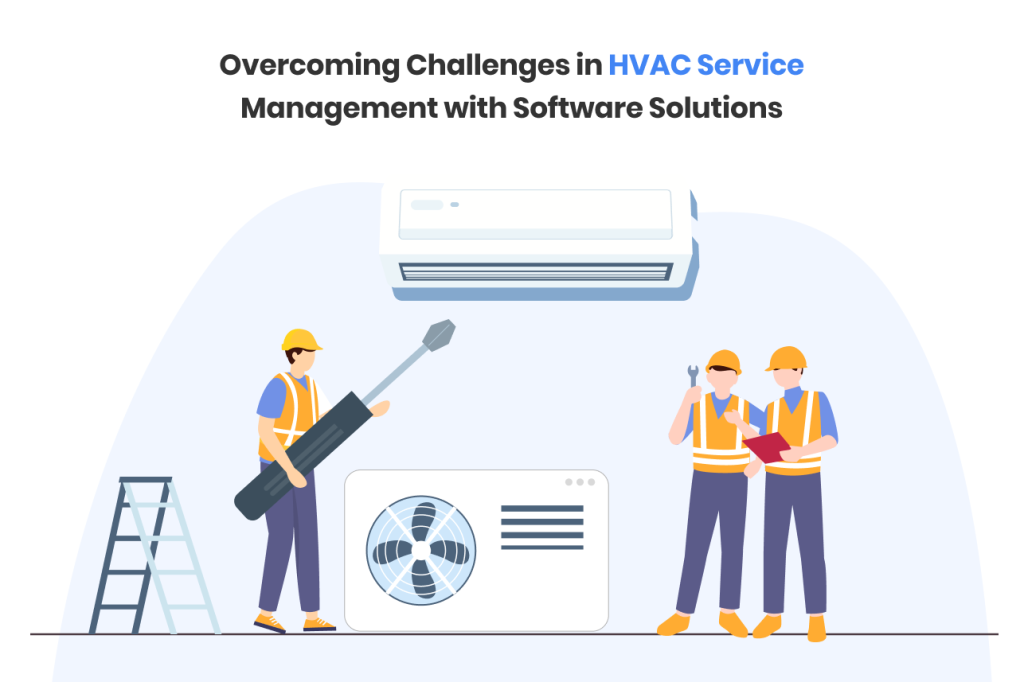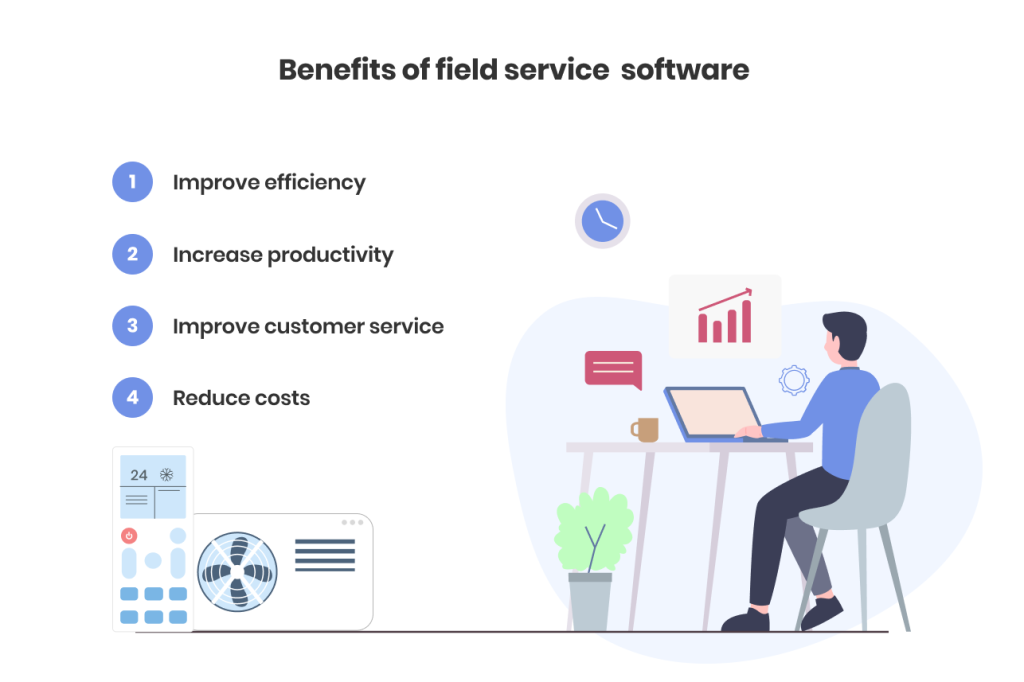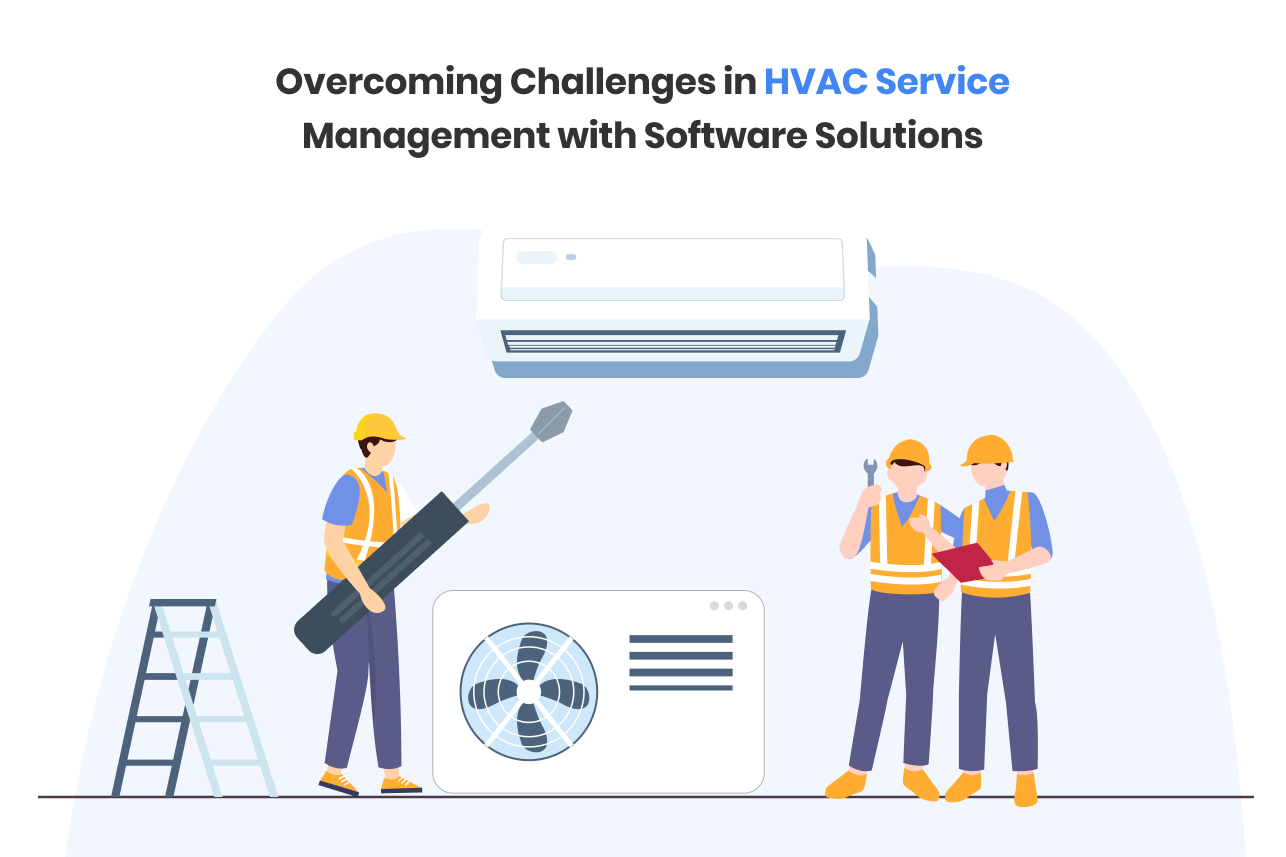The HVAC (heating, ventilation, and air conditioning) industry is a vital part of the economy, providing essential services to businesses and homes alike. However, the industry faces a number of challenges, including:

- Competition: The HVAC industry is highly competitive, with a number of large and small companies vying for customers. This can make it difficult to stand out from the competition and win new business.
- Skills shortage: The HVAC industry is facing a skills shortage, as there are not enough qualified technicians to meet demand. This can lead to long wait times for customers and increased costs for businesses.
- Regulations: The HVAC industry is subject to a number of regulations, which can add to the cost of doing business. These regulations can also make it difficult to innovate and bring new products to market.
Software solutions can help HVAC businesses overcome these challenges and improve their bottom line. Here are some of the ways that software can help:

- Improve efficiency: Software can help businesses automate tasks, such as scheduling appointments, dispatching technicians, and tracking inventory. This can free up employees to focus on more important tasks, such as customer service and technical support.
- Increase productivity: Software can help businesses track the performance of their technicians and identify areas where they can improve. This can lead to increased productivity and reduced costs.
- Improve customer service: Software can help businesses provide better customer service by providing customers with real-time status updates on their appointments and by allowing them to track their service history. This can help businesses build customer loyalty and increase repeat business.
- Reduce costs: Software can help businesses reduce costs by streamlining operations and eliminating waste. For example, software can help businesses track their fuel consumption and identify ways to reduce it.
There are a number of different HVAC software solutions available on the market. When choosing a software solution, businesses should consider their specific needs and requirements. Some of the factors to consider include:
- The size of the business: Smaller businesses may need a simpler software solution, while larger businesses may need a more complex solution with more features.
- The specific needs of the business: Businesses should consider their specific needs and requirements, such as the types of services they offer, the number of technicians they have, and the size of their customer base.
- The budget: The cost of HVAC software can vary depending on the features and functionality of the solution. Businesses should set a budget before they start shopping for software.
Software solutions can be a valuable tool for HVAC businesses. By automating tasks, improving efficiency, and increasing productivity, software can help businesses overcome challenges and improve their bottom line.
In addition to the benefits mentioned above, software solutions can also help HVAC businesses:
- Improve compliance: Software can help businesses track their compliance with regulations, such as those related to emissions and safety.
- Make better decisions: Software can help businesses collect and analyze data, which can be used to make better decisions about things like pricing, marketing, and inventory management.
- Grow their business: Software can help businesses reach new customers and expand into new markets.
Overall, software solutions can be a valuable asset for HVAC businesses. By choosing the right software solution and using it effectively, businesses can improve their efficiency, productivity, and customer service. This can lead to increased profits and long-term growth.
Here are some examples of how HVAC businesses are using software to overcome challenges and improve their bottom line:
- A small HVAC business is using software to automate its scheduling and dispatching processes. This has saved the business time and money, and it has also improved customer satisfaction.
- A large HVAC company is using software to track its technicians’ performance. This has helped the company identify areas where it can improve its training programs.
- An HVAC contractor is using software to track its inventory. This has helped the contractor reduce waste and improve its bottom line.
These are just a few examples of how HVAC businesses are using software to overcome challenges and improve their bottom line. If you are an HVAC business owner, I encourage you to explore the possibilities of software and see how it can help your business.
